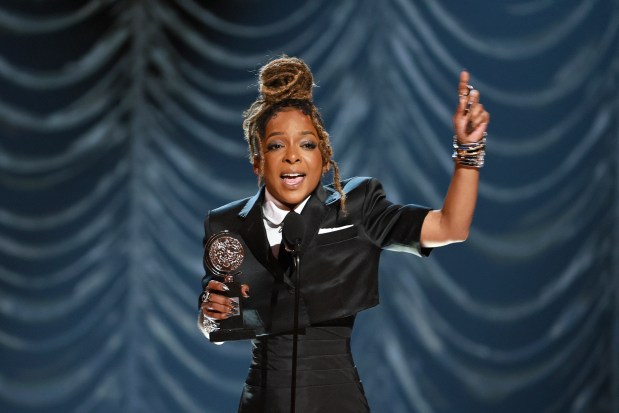Joel Flaum spent almost 50 years on the federal bench in Chicago, including six years as the chief judge on Chicago’s U.S. 7th Circuit Court of Appeals.
Flaum built a reputation for judicial effectiveness while issuing a string of moderate rulings on issues including abortion.
“He was kind and gracious to everyone, including the people who appeared before him when he was a judge but also the people he came into contact with every day,” said Jayne Thompson, an attorney whose late husband, former Illinois Gov. James R. Thompson, worked with Flaum in the U.S. attorney’s office in Chicago. “He was a superb lawyer and a superb judge because he always tried to do justice — not necessarily what the prosecutor or defense lawyer wanted but what he thought was a just outcome in his cases, and he was really dedicated to that.”
Flaum, 88, died Wednesday after a short illness. The death was confirmed by his former wife, Thea Flaum. He was a longtime Gold Coast resident.
Born Joel Martin Flaum in Hudson, N.Y., he received a bachelor’s degree in 1958 from Union College in Schenectady, N.Y., and a law degree from Northwestern University in 1963. He picked up a master’s degree in law from Northwestern the next year.
After a stint in private practice, Flaum became an assistant state’s attorney in Cook County and was one of the prosecutors in the trial of mass killer Richard Speck. At the same time, he cofounded and was associate director of the police legal adviser program at Northwestern’s law school, where he also was a lecturer from 1967 until 1969.
Flaum worked in the Illinois attorney general’s office for several years and at 33 was the youngest person ever to head the state attorney general’s Chicago office. An April 1970 Tribune article called him a “quiet, scholarly” lawyer who handled most of the appeals work for then-Attorney General William Scott.
Seventh Circuit Judge William J. Bauer, a former U.S. attorney in Chicago, recalled his initially unsuccessful efforts to hire Flaum to be a federal prosecutor.
“I’d already taken (James R.) Thompson away from Scott, but Scott asked Joel to stay and he stayed,” Bauer said. “Joel was a great guy, he was a good judge and he was a good man. He was a kind, decent man who didn’t throw his weight around. He was nice to people, and he knew what he was doing.”
Thompson became U.S. attorney in Chicago in 1971 and chose Flaum to serve as first assistant U.S. attorney in the Northern District of Illinois, a post he held from 1972 until 1975. Thompson was trying former Illinois Gov. Otto Kerner on corruption charges and needed Flaum to run the rest of the U.S. attorney’s office during that trial, Jayne Thompson said.
Flaum became part of a group of so-called “Thompsonites” — also known as the “Kiddie Corps” and the “Thompson Mafia” — who went on to assume top law enforcement and judicial posts, along with Dan Webb, Sam Skinner, Charles Kocoras, Tyrone Fahner and Jeremy Margolis.
Upon the recommendation of then-U.S. Sen. Charles Percy, President Gerald Ford in late 1974 nominated Flaum to be a federal district judge in the Northern District of Illinois. With his swearing-in in January 1975, Flaum became the nation’s youngest federal judge.
Flaum told the Tribune that although becoming a judge had not been set as a life goal, “there probably is a part of every practicing lawyer that hopes he might be so honored.”
“Certainly I owe much of my success to the prominence of the office in which I now serve, but actually I feel I’ve learned much and owe much to many,” he told the Tribune, referring to his work in the U.S. attorney’s office. “I consider myself a product of the bar and the people I’ve served with.”
Flaum struck down certain restrictive portions of a 1979 Illinois law that the state legislature passed to restrict abortions in Illinois. The 7th Circuit later struck down other portions of the law.
Percy recommended Flaum for a vacancy on the 7th Circuit Court of Appeals in Chicago in 1981, but President Ronald Reagan’s administration instead chose to nominate University of Chicago law professor Richard Posner. Flaum then was recommended by Percy for a subsequent 7th Circuit vacancy and was confirmed by the Senate to the court in 1983.
For the next 37 years, Flaum was a judge in active service on the 7th Circuit. He became chief judge in 2000, serving until 2006.
On several occasions, Flaum’s name was floated as a possibility to head the FBI. In 1987, Thompson urged Reagan to make Flaum FBI director. Friends told the Tribune, however, that Flaum had not actively sought the post. Once again in 2001, Flaum was reported to be under discussion in Republican circles for the post, which ultimately went to Robert Mueller.
On the 7th Circuit, Flaum served alongside Judge Ilana Diamond Rovner, who earlier had succeeded him as a federal district judge.
“He was just the most remarkable person,” Rovner said. “He was a small-town boy from Hudson, New York, who conquered Chicago and far (beyond). Nobody had a better sense of humor. And he was a caring kind of person.”
In 2018, Flaum was part of a 7th Circuit panel that struck down an Indiana law restricting abortion, concluding that the law was unconstitutional.
Flaum took senior status, a form of semi-retirement, at the end of 2020. However, he continued serving and going to his federal chambers to handle cases until very recently, colleagues said.
On Nov. 13, Flaum received the Edward J. Devitt Distinguished Service to Justice Award in a ceremony at the U.S. Supreme Court presided over by Chief Justice John Roberts Jr. The award is made to a federal judge who has made significant contributions to the administration of justice, the advancement of the rule of law and the improvement of society as a whole.
“It was a great gift to him,” said Jayne Thompson, who attended the event. “The speakers were magnificent, and it was a wonderful and well-deserved evening and I know it meant a great deal to Joel.”
A first marriage to TV producer Thea Flaum ended in divorce. Flaum is survived by his wife, Delilah; a son, Jonathan; a daughter, Alison; and four grandchildren.
A service will be held at 11 a.m. Monday, Dec. 9, at Congregation Anshe Emet, 3751 N. Broadway, Chicago.
Goldsborough is a freelance reporter.




